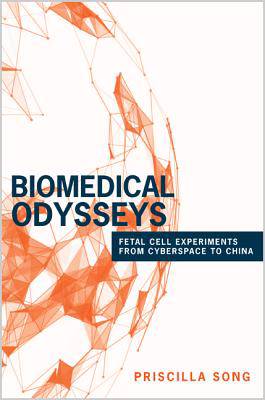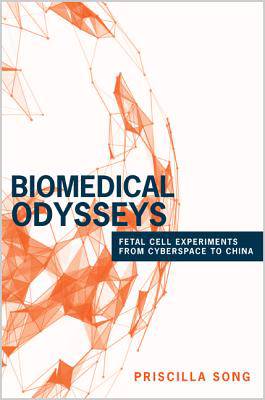
- Afhalen na 1 uur in een winkel met voorraad
- Gratis thuislevering in België vanaf € 30
- Ruim aanbod met 7 miljoen producten
- Afhalen na 1 uur in een winkel met voorraad
- Gratis thuislevering in België vanaf € 30
- Ruim aanbod met 7 miljoen producten
Omschrijving
Thousands of people from more than eighty countries have traveled to China since 2001 to undergo fetal cell transplantation. Galvanized by the potential of stem and fetal cells to regenerate damaged neurons and restore lost bodily functions, people grappling with paralysis and neurodegenerative disorders have ignored the warnings of doctors and scientists back home in order to stake their futures on a Chinese experiment. Biomedical Odysseys looks at why and how these individuals have entrusted their lives to Chinese neurosurgeons operating on the forefront of experimental medicine, in a world where technologies and risks move faster than laws can keep pace. Priscilla Song shows how cutting-edge medicine is not just about the latest advances in biomedical science but also encompasses transformations in online patient activism, surgical intervention, and borderline experiments in health care bureaucracy.
Bringing together a decade of ethnographic research in hospital wards, laboratories, and online patient discussion forums, Song opens up important theoretical and methodological horizons in the anthropology of science, technology, and medicine. She illuminates how poignant journeys in search of fetal cell cures become tangled in complex webs of digital mediation, the entrepreneurial logics of postsocialist medicine, and fraught debates about the ethics of clinical experimentation. Using innovative methods to track the border-crossing quests of Chinese clinicians and their patients from around the world, Biomedical Odysseys is the first book to map the transnational life of fetal cell therapies.Specificaties
Betrokkenen
- Auteur(s):
- Uitgeverij:
Inhoud
- Aantal bladzijden:
- 320
- Taal:
- Engels
- Reeks:
- Reeksnummer:
- nr. 12
Eigenschappen
- Productcode (EAN):
- 9780691174785
- Verschijningsdatum:
- 16/05/2017
- Uitvoering:
- Paperback
- Formaat:
- Trade paperback (VS)
- Afmetingen:
- 152 mm x 234 mm
- Gewicht:
- 498 g

Alleen bij Standaard Boekhandel
Beoordelingen
We publiceren alleen reviews die voldoen aan de voorwaarden voor reviews. Bekijk onze voorwaarden voor reviews.











